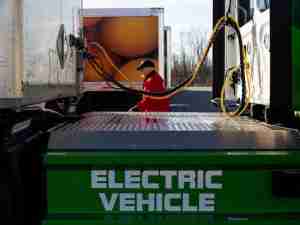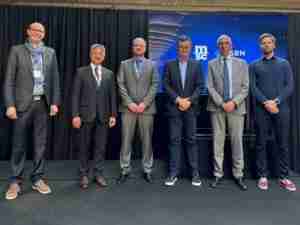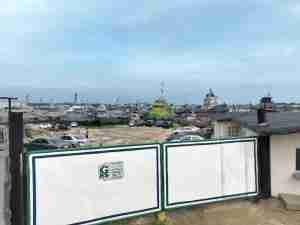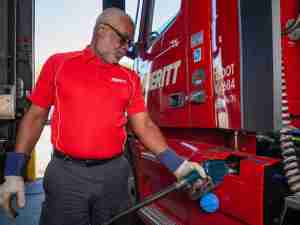The U.S. Department of Energy (DOE) today announced up to $10 million in funding to model the low-carbon intermodal freight transportation system of the future, in order to minimize emissions and maximize resiliency. Projects will seek to model the optimal deployment of energy infrastructure and logistics for moving goods across maritime, rail, and road transportation. The funding is part of a new Advanced Research Projects Agency-Energy (ARPA-E) Exploratory Topic, which echoes the goals set forth by President Biden to meet our nation’s decarbonization timeline.
“Where there are challenges, ARPA-E sees opportunities. With this new Exploratory Topic, we’re making clear that while we know the freight industry already has a good understanding of available low-carbon technologies, it will take careful planning and coordination to minimize cost and deployment timelines necessary to decarbonize intermodal freight. ARPA-E wants to be at the forefront of that work by developing new models for the future low-carbon freight transportation system,” said ARPA-E Director Evelyn N. Wang.
Previous ARPA-E programs have addressed route optimization for single modes (such as rail freight and light duty passenger vehicles). Other government, academic, and private modeling efforts have targeted portions of the freight system, but none so far have addressed its deeply interconnected nature, including the challenges and opportunities intermodal transportation presents. Considering the interwoven yet fragmented nature of logistics and freight transportation, with limited data sharing, misaligned incentives, and many different stakeholders, there is a need for top-down modeling efforts that cross intermodal boundaries. The INcreasing Transportation Efficiency and Resiliency through MODeling Assets and Logistics (INTERMODAL) Exploratory Topic focuses on developing:
- Infrastructure models that enable prioritization of low-carbon energy infrastructure deployment, along with data required for the effective deployment of this optimized distribution system; and
- Logistics models that enable predictive and responsive optimization of modal choice, inter- or intra- modal transfer, or routing consistent with future energy system infrastructure deployments.











